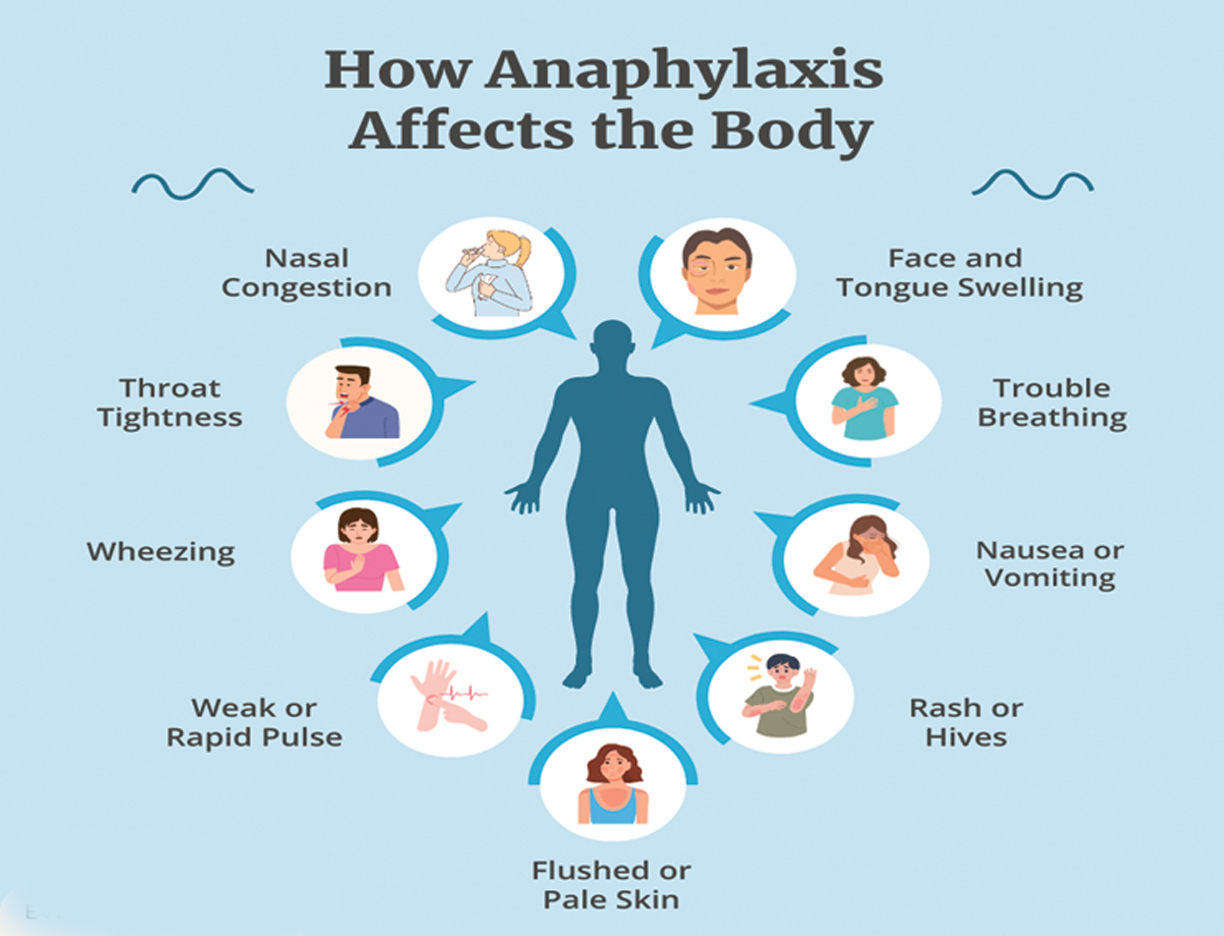
Anaphylaxis is a medical emergency and a life-threatening acute hypersensitivity reaction. It may be defined as a rapidly evolving, generalized, multisystem
allergic reaction. If it is not treated or very late treated, its rapid progression may lead to respiratory collapse. The exposure to certain medications, foods, and insect stings is among
the main sources of this disease. So, bee stings, fire ant bites, latex, and foods like peanuts, tree nuts, fish, shellfish, milk, eggs, wheat spelt, rye, barley, soya, red meat and sesame,
etc., and medications like antibiotics, aspirin and other pain relievers, are major sources of this.
How does it happen?
Anaphylaxis causes the immune system to release a flood of chemicals that can cause one to go into shock. That is, blood pressure drops suddenly and the airways narrow, blocking breathing.
The immune system produces antibodies that defend against foreign substances. This is good when a foreign substance is harmful, such as certain bacteria or viruses. But some people’s immune
systems over-react to substances that do not normally cause an allergic reaction. Allergic systems are not usually life threatening, but a severe allergic reaction can lead to anaphylaxis.
Anyone can be affected but it occurs to young people more.
Symptoms
The common symptoms are a rapid, weak pulse, low blood pressure, a skin rash, nausea and vomiting, constriction of airways, and dizziness and fainting.
Some risk factors
There are some prominent risk factors. One, if one already had anaphylaxis, the risk of having severity rises more and more. Two, the risk of allergy or asthma risk of it increases. Three,
there are other conditions, including heart disease and irregular accumulation of a certain type of white blood cell, i.e., mastocytosis.
How to prevent it?
The foremost step is to keep away from substances that cause a reaction. Secondly, wear a medical necklace or bracelet to indicate one has an allergy to specific substances. Thirdly, one can
keep an emergency kit with prescribed medications available at all times. Fourthly, be sure to alert all one’s providers to the medication reaction he/she has had. Fifthly, it is also suggested
that when one is allergic to a stinging insect, a caution to be given around him/her. Sixthly, if anybody is food allergic, then careful reading of labels is necessary.
Diagnosis
A blood test is to be done to measure the amount of a certain enzyme that can be elevated up to three hours after anaphylaxis. Secondly, one can be tested for allergies with skin tests or blood
tests to help determine what triggered.